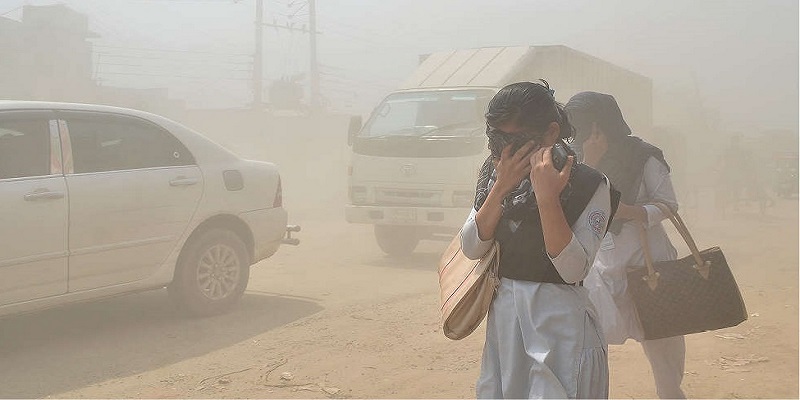Depleting air quality is a significant threat to our body, it may cause severe and potentially fatal symptoms and complications.
 (Air pollution can cause various diseases)
(Air pollution can cause various diseases)
Heart rhythm disorders can be termed arrhythmia or Atrial Fibrillation (irregular heartbeats), which occurs when there is a problem with the rate or rhythm of the heartbeat. It mainly occurs when the electrical signals that coordinate heartbeats are not working correctly. An irregular heartbeat may feel like a racing heart or fluttering. A person’s heart can beat too fast, too slowly, or with an irregular rhythm during an arrhythmia. When a heart beats too fast, the condition is called tachycardia. When a heart beats too slowly, the situation is called bradycardia. However, many heart arrhythmias are harmless. You may feel faint or dizzy or have difficulty breathing. But, in case if they are highly irregular or result from a weak or damaged heart, then it may cause severe and potentially fatal symptoms and complications. If an arrhythmia is left untreated, the heart may not pump enough blood to the body. This can damage the heart, the brain, or other organs. Arrhythmia mainly occurs during old age as the heart gets weak, but cases have been rising among the younger population in recent years.
HOW DOES AIR POLLUTION AFFECT YOUR HEART RATE?
Depleting air quality is a significant threat to our body, PM 2.5, PM 10, and nitrogen-di-oxide released due to traffic pollution, burning of firewood, smoking, industrial pollution, etc. can cause heart palpitations (irregular heartbeats) as plaque can build up in the arteries through which nutrients, blood, and oxygen are supplied to various parts of the body. In addition, these pollutants can travel up the bloodstream, which can, in turn, narrow your arteries and weaken your muscles, making you prone to heart attacks. Other parts of the body like your lungs, brain, and skin can also be affected in the long run.
SYMPTOMS CAUSED BY AIR POLLUTION ON YOUR HEART
When a person suffers from Arrhythmia caused by air pollution, they can experience a series of symptoms, including abnormal heartbeats (slower or faster than the regular BPM), breathlessness, fatigue, anxiety, sweating, dizziness, and chest pain. Since air pollution can also affect your lungs, symptoms like shortness of breath, headaches, allergic fevers, and asthma also trigger pre-existing medical conditions. In addition, daily exposure to high levels of pollution can increase the aging of your lungs and heart, leading to death at an early stage.
HOW CAN YOU BEAT AIR POLLUTION AND WHEN TO SEEK A CARDIOLOGIST?
When the above symptoms worsen, for instance, increased breathlessness, sudden palpitations caused by irregular heart rhythm, raging chest pains, or a heart attack, it is advisable to visit a cardiologist for immediate consultation and ensure timely treatment. Appropriate lifestyle style changes should be made to avoid suffering from heart conditions; it is essential to realize that one should avoid smoking, indulging in excess alcohol, having a heart-healthy diet that contributes to strengthening your heart, maintaining a physically active routine by exercising, and also managing your stress; these steps can help in effectively managing your heart health.
